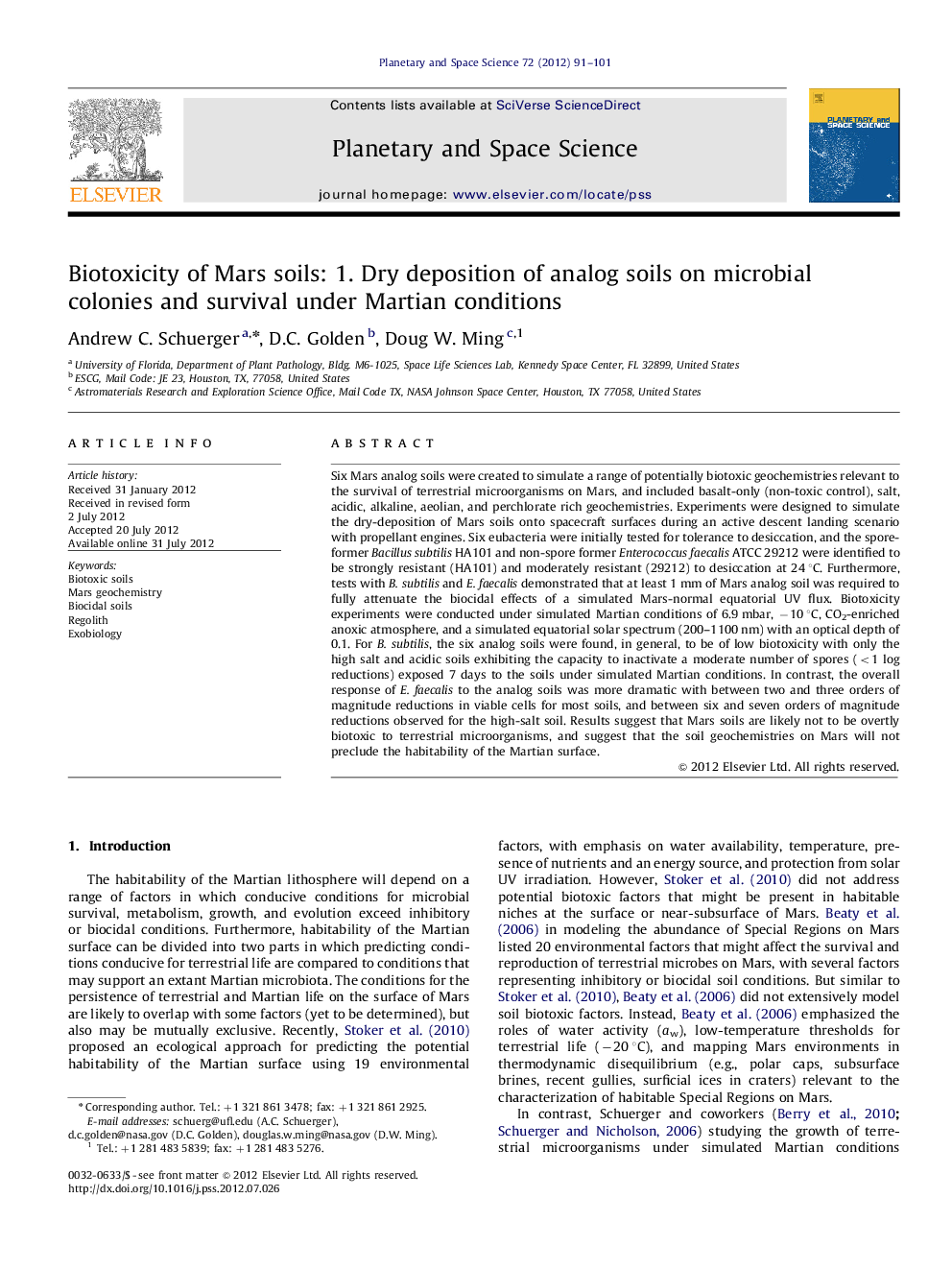| Article ID | Journal | Published Year | Pages | File Type |
|---|---|---|---|---|
| 1781370 | Planetary and Space Science | 2012 | 11 Pages |
Six Mars analog soils were created to simulate a range of potentially biotoxic geochemistries relevant to the survival of terrestrial microorganisms on Mars, and included basalt-only (non-toxic control), salt, acidic, alkaline, aeolian, and perchlorate rich geochemistries. Experiments were designed to simulate the dry-deposition of Mars soils onto spacecraft surfaces during an active descent landing scenario with propellant engines. Six eubacteria were initially tested for tolerance to desiccation, and the spore-former Bacillus subtilis HA101 and non-spore former Enterococcus faecalis ATCC 29212 were identified to be strongly resistant (HA101) and moderately resistant (29212) to desiccation at 24 °C. Furthermore, tests with B. subtilis and E. faecalis demonstrated that at least 1 mm of Mars analog soil was required to fully attenuate the biocidal effects of a simulated Mars-normal equatorial UV flux. Biotoxicity experiments were conducted under simulated Martian conditions of 6.9 mbar, −10 °C, CO2-enriched anoxic atmosphere, and a simulated equatorial solar spectrum (200–1100 nm) with an optical depth of 0.1. For B. subtilis, the six analog soils were found, in general, to be of low biotoxicity with only the high salt and acidic soils exhibiting the capacity to inactivate a moderate number of spores (<1 log reductions) exposed 7 days to the soils under simulated Martian conditions. In contrast, the overall response of E. faecalis to the analog soils was more dramatic with between two and three orders of magnitude reductions in viable cells for most soils, and between six and seven orders of magnitude reductions observed for the high-salt soil. Results suggest that Mars soils are likely not to be overtly biotoxic to terrestrial microorganisms, and suggest that the soil geochemistries on Mars will not preclude the habitability of the Martian surface.
► Six Mars soils were not biotoxic to Bacillus subtilis and Enterococcus faecalis. ► Biocidal factors were UV irradiation>desiccation>hypobaria>soil chemistries. ► Mars is not inhospitable to terrestrial microorganisms relevant to soil chemistry.
